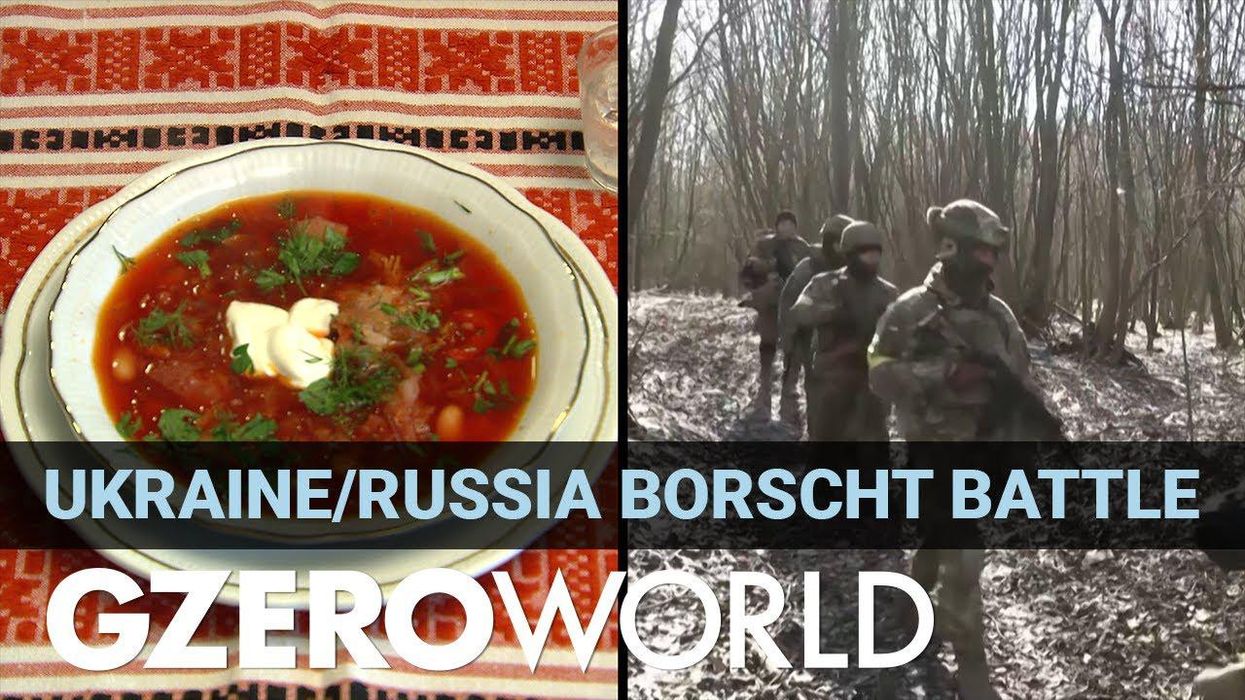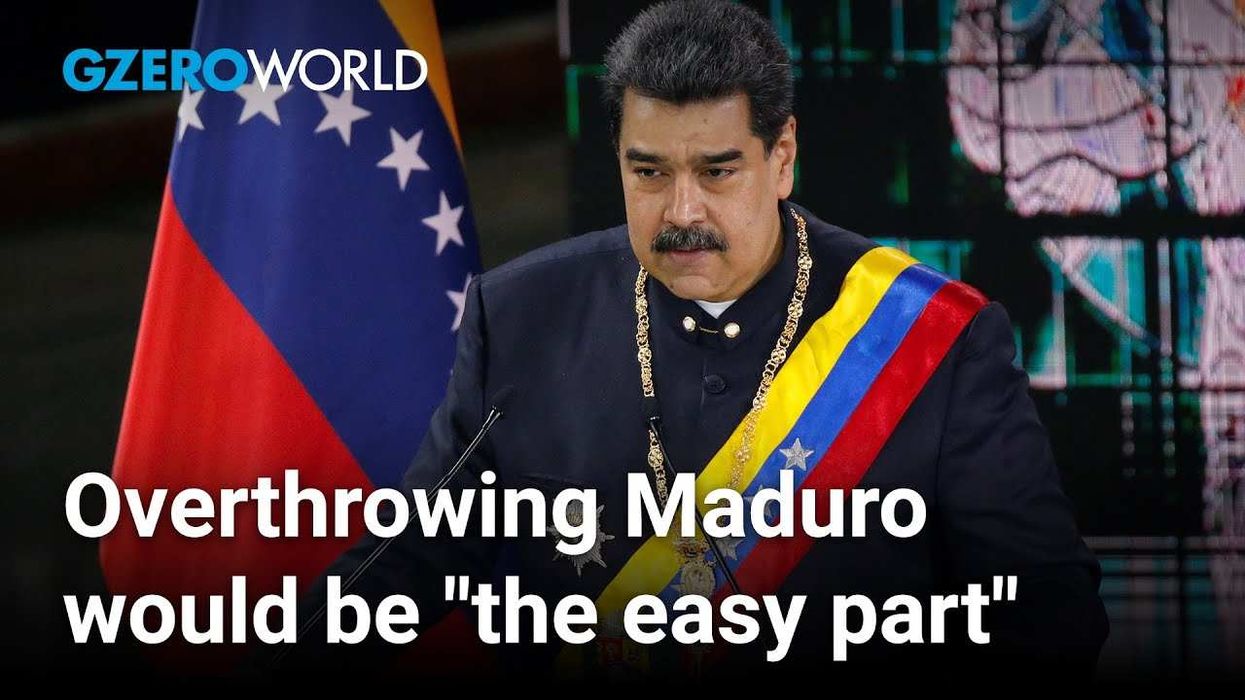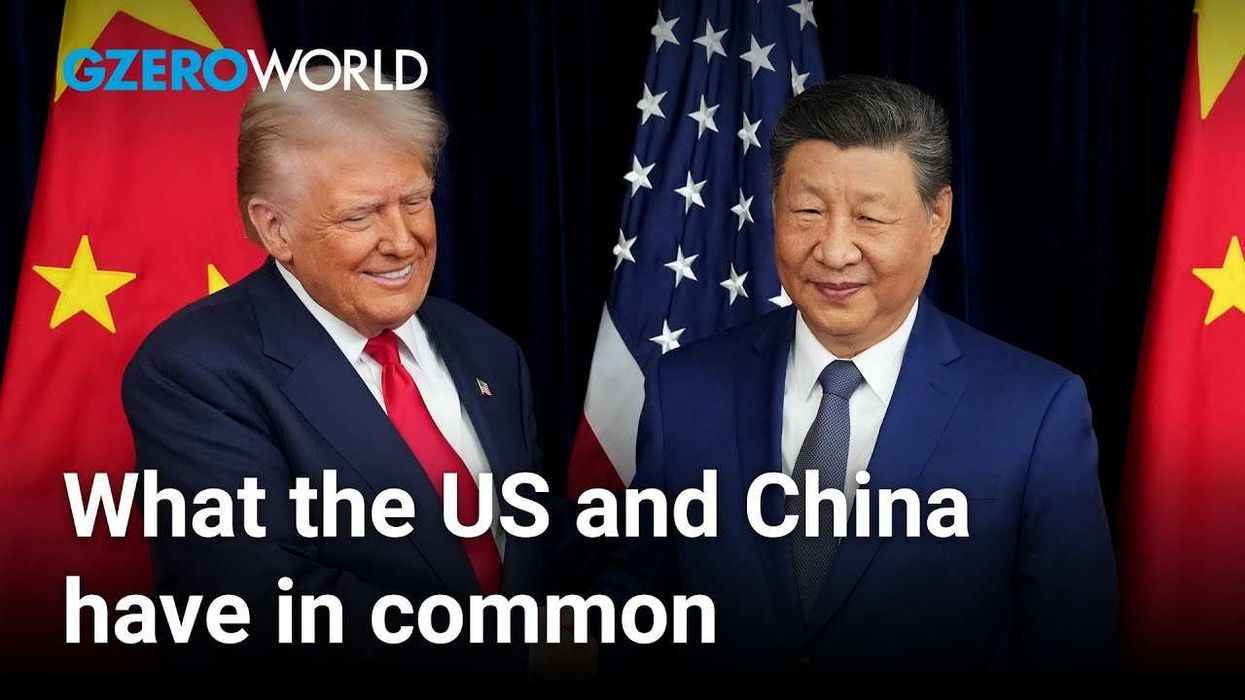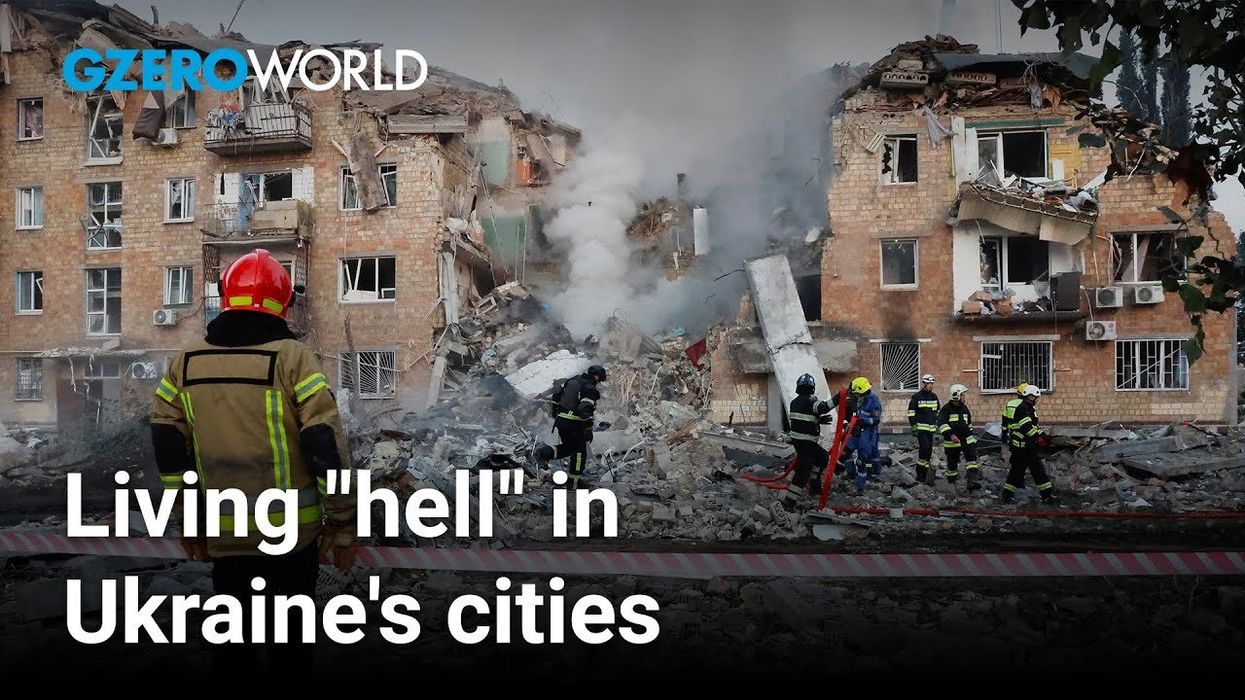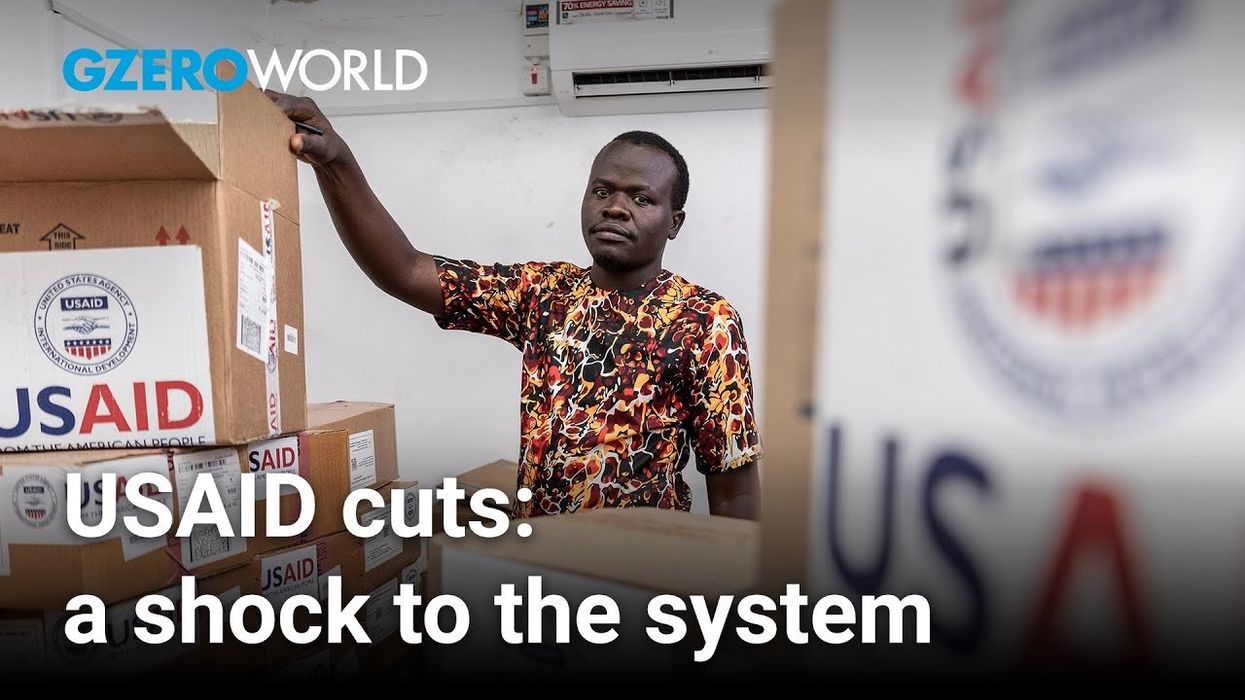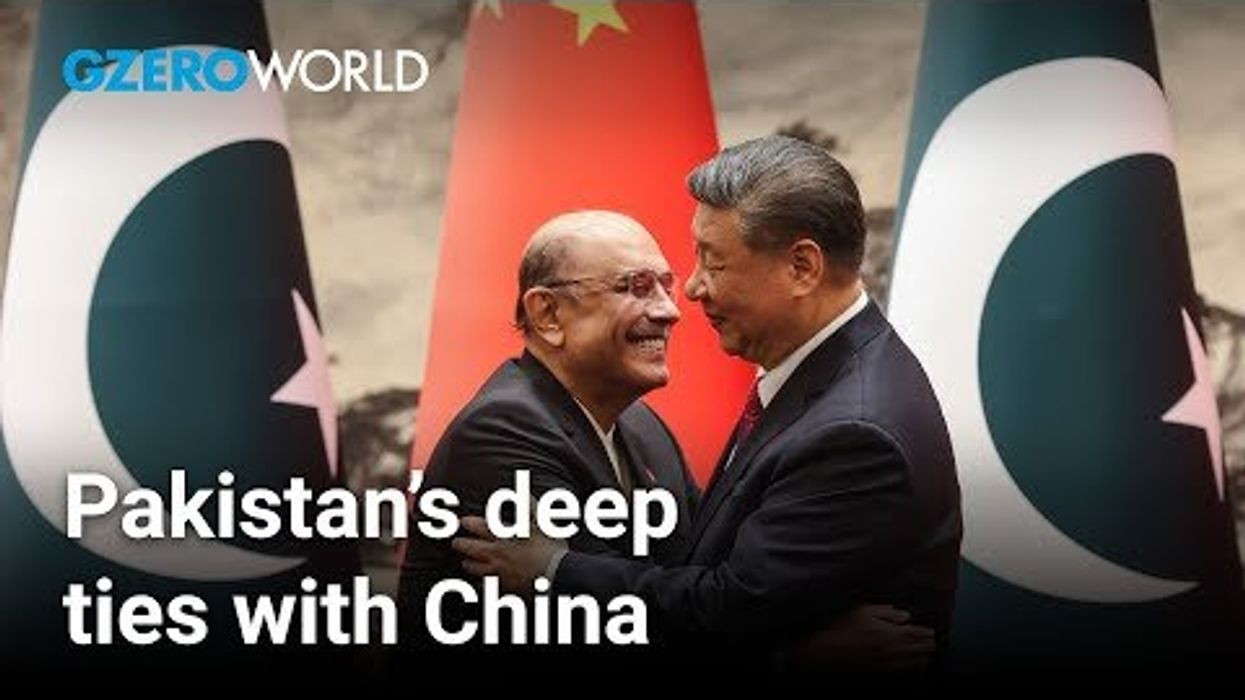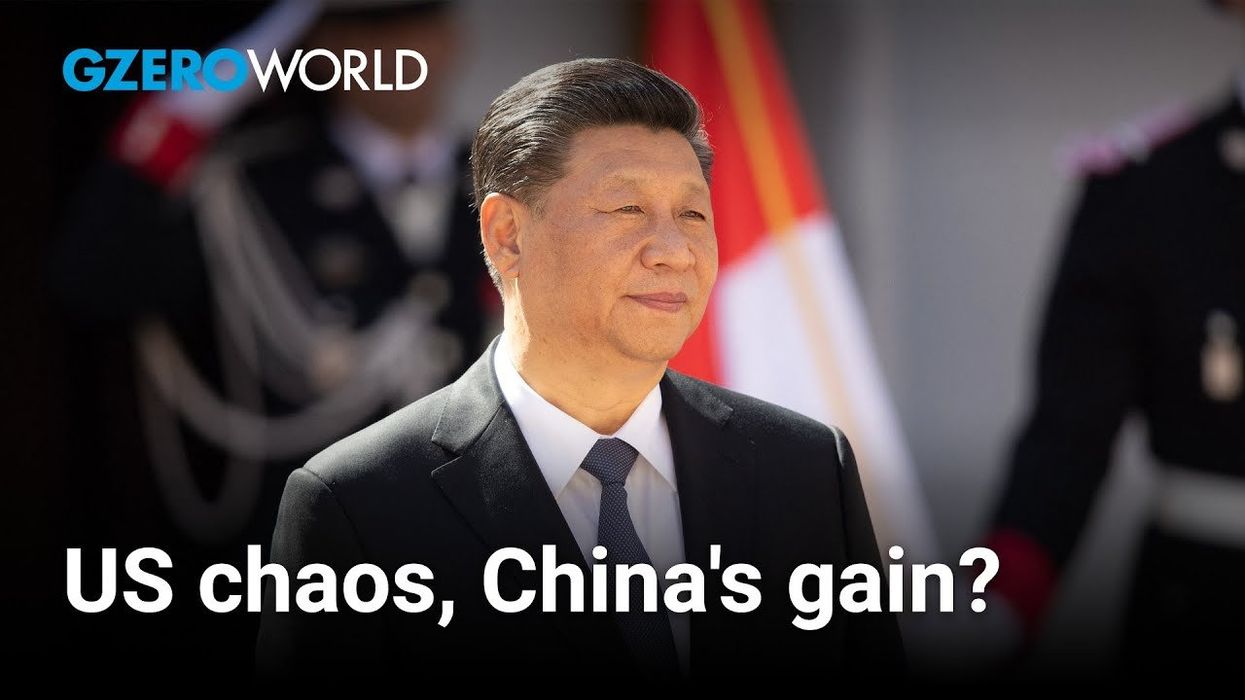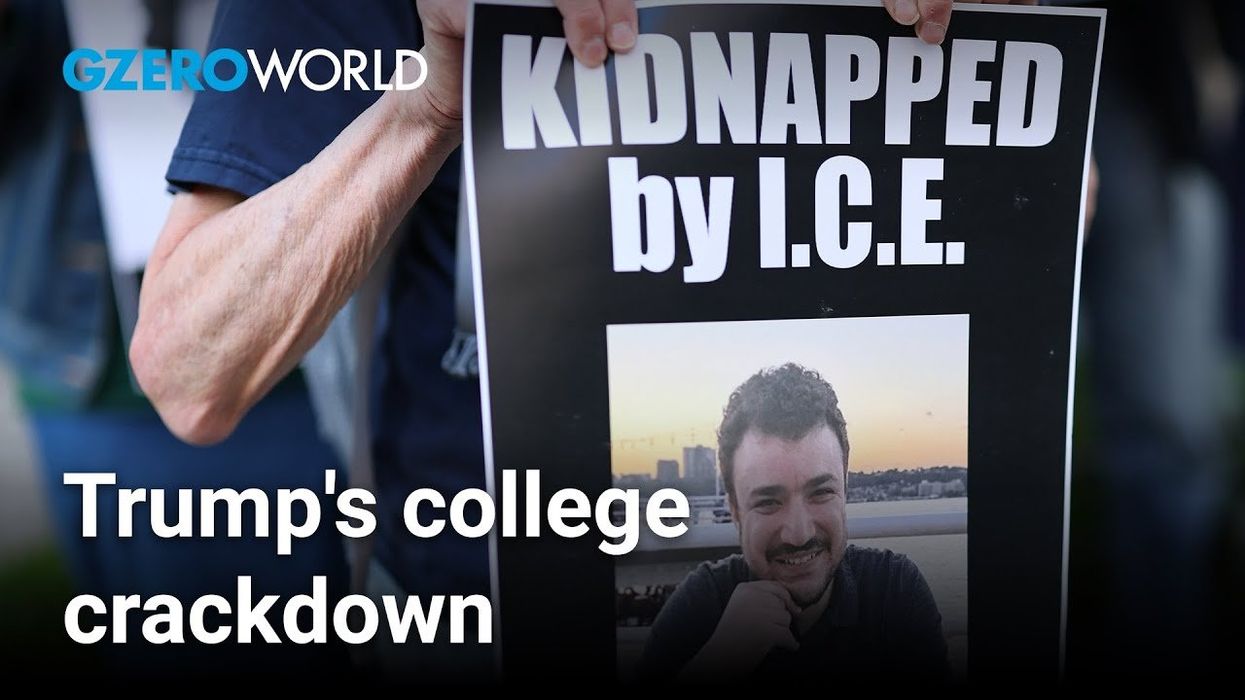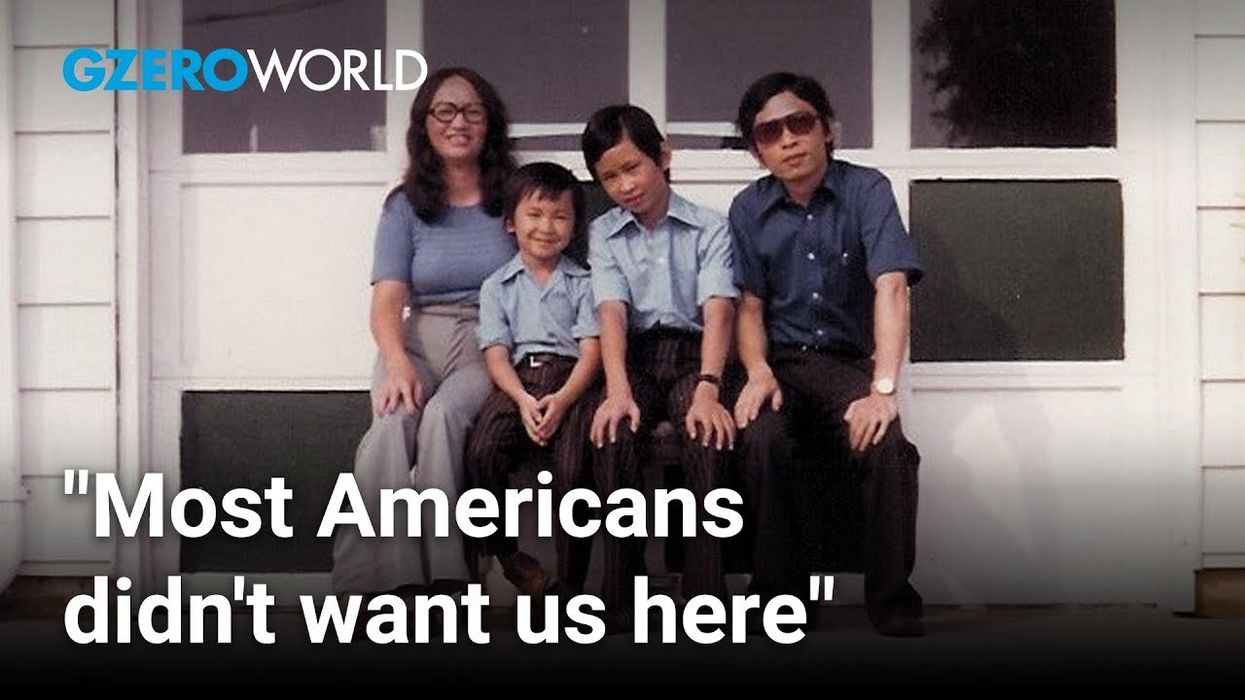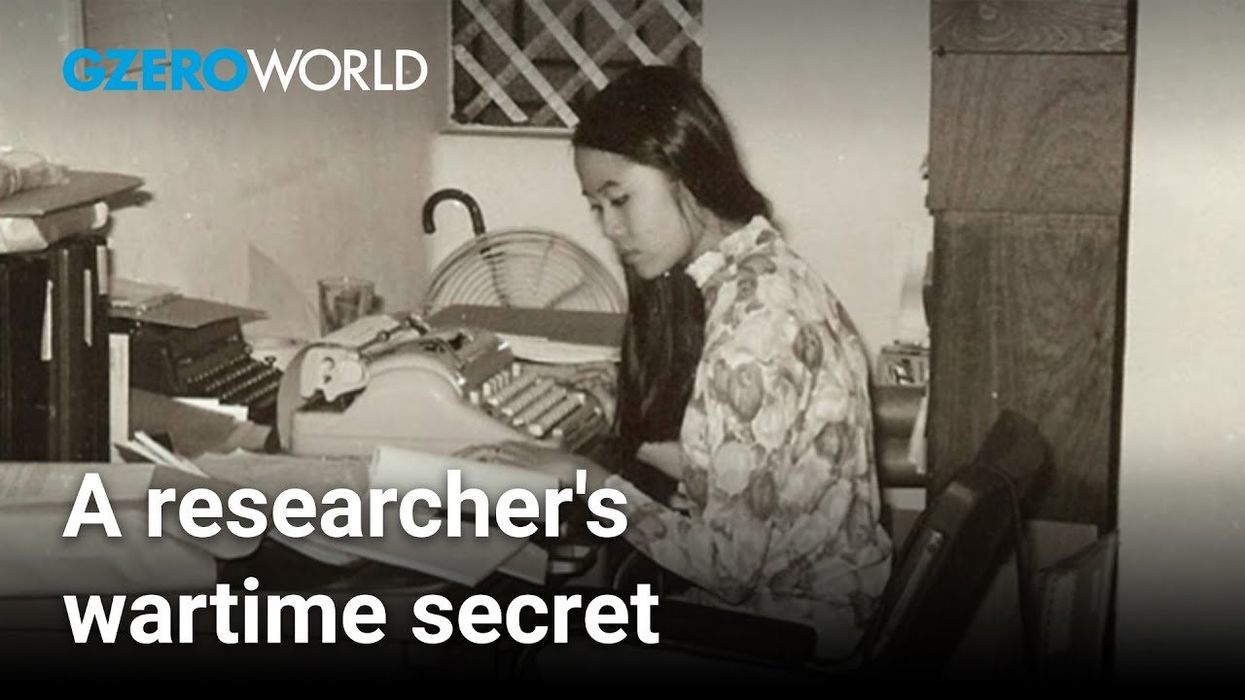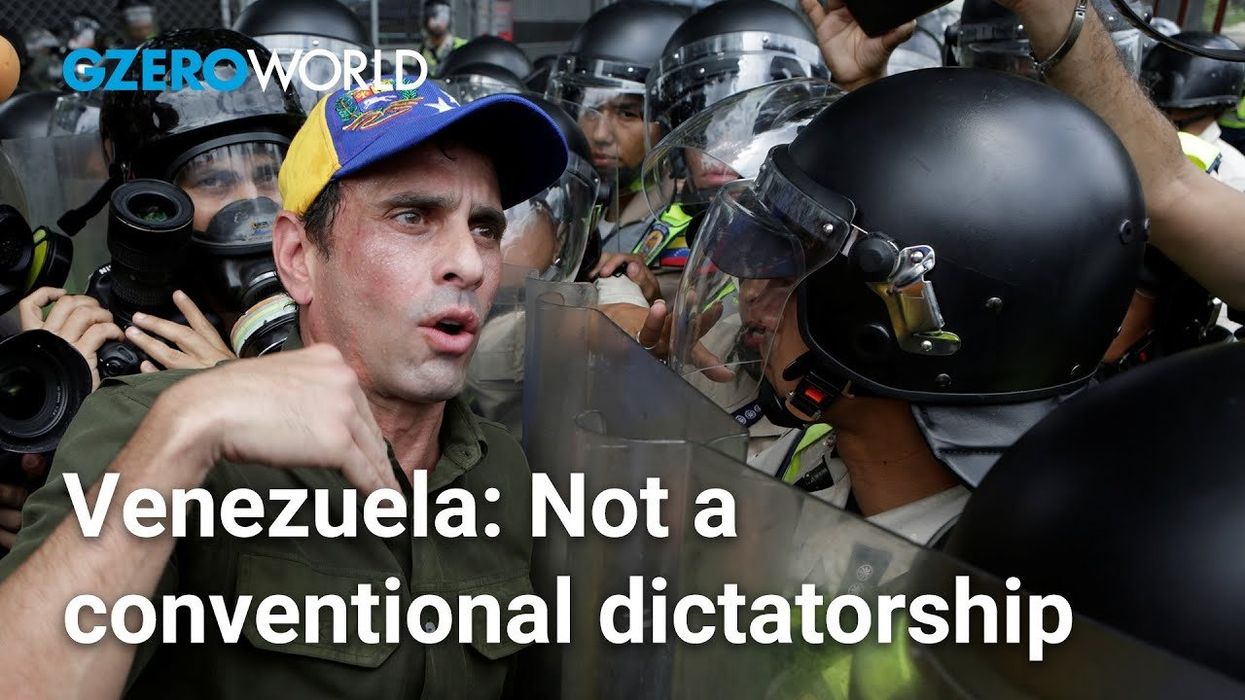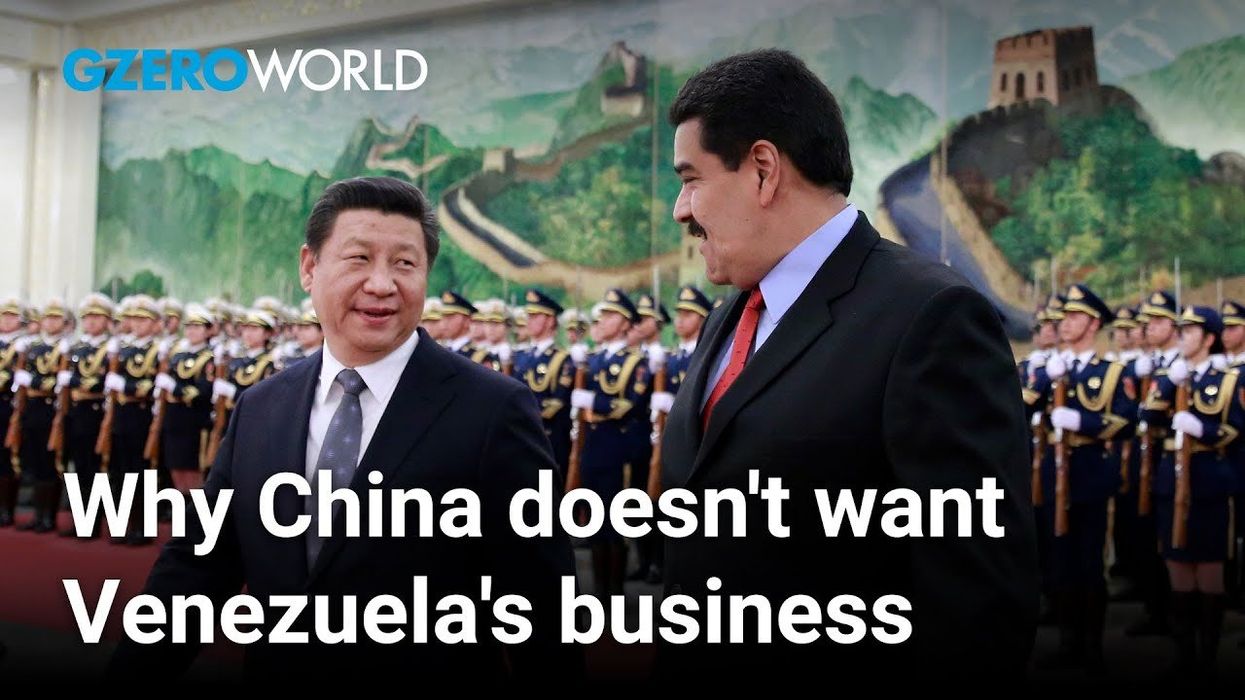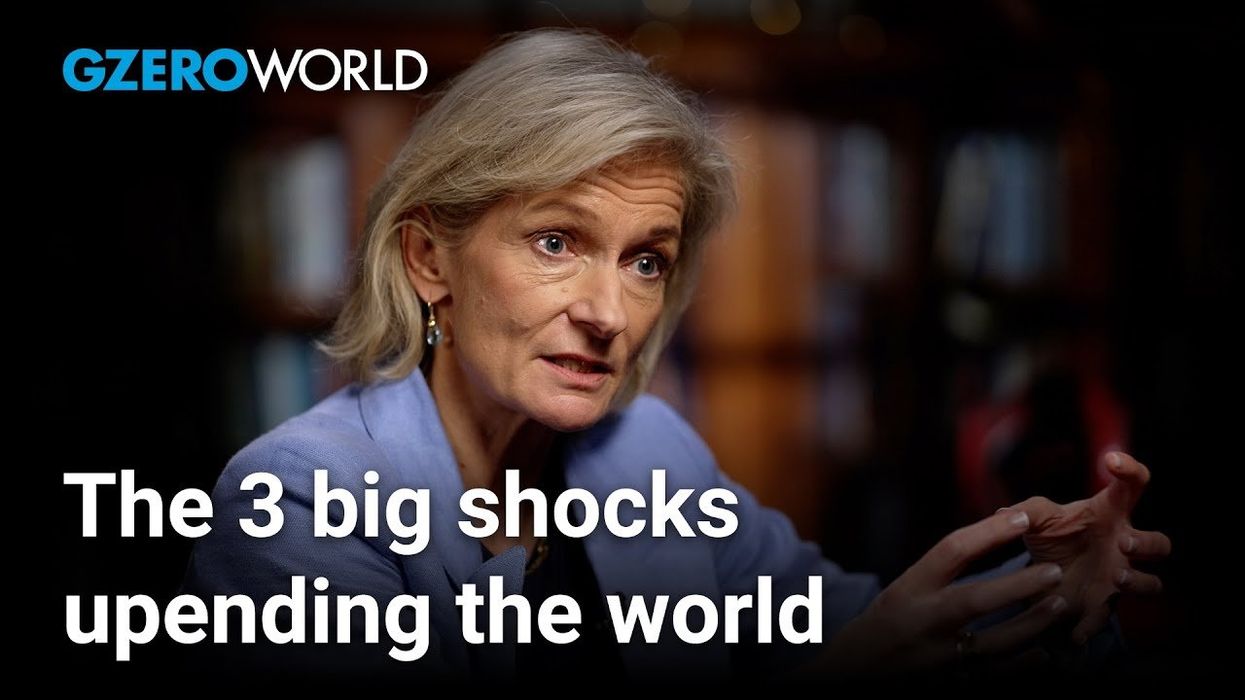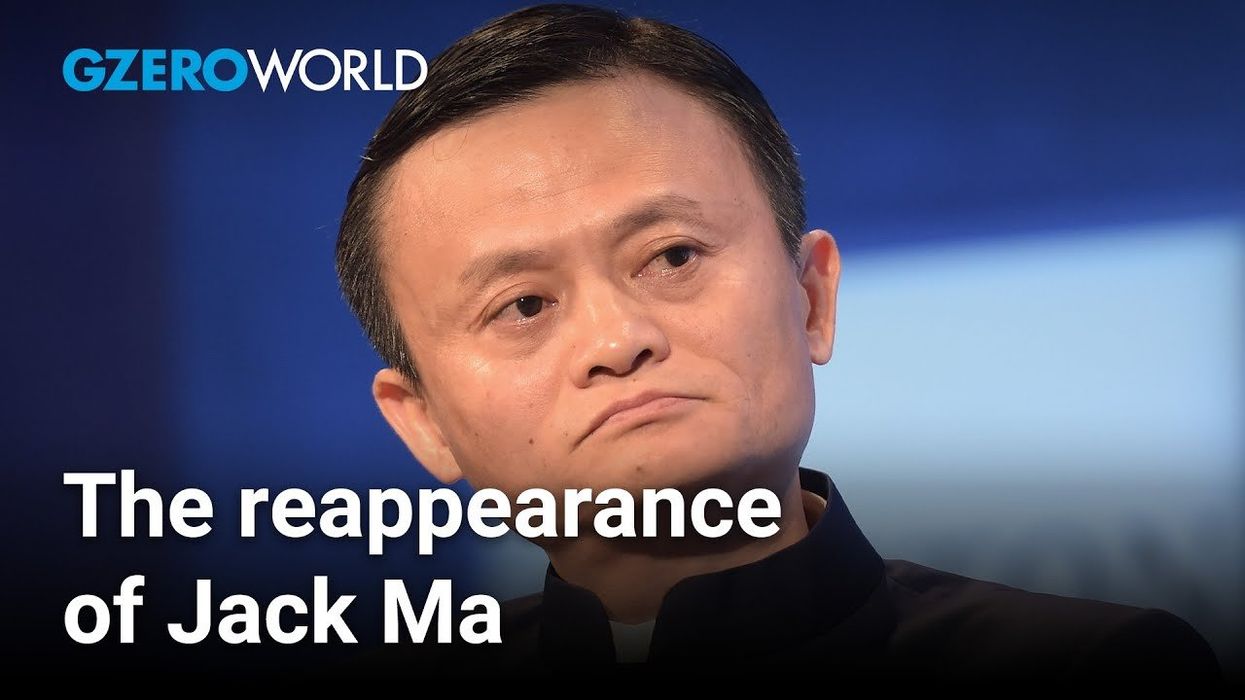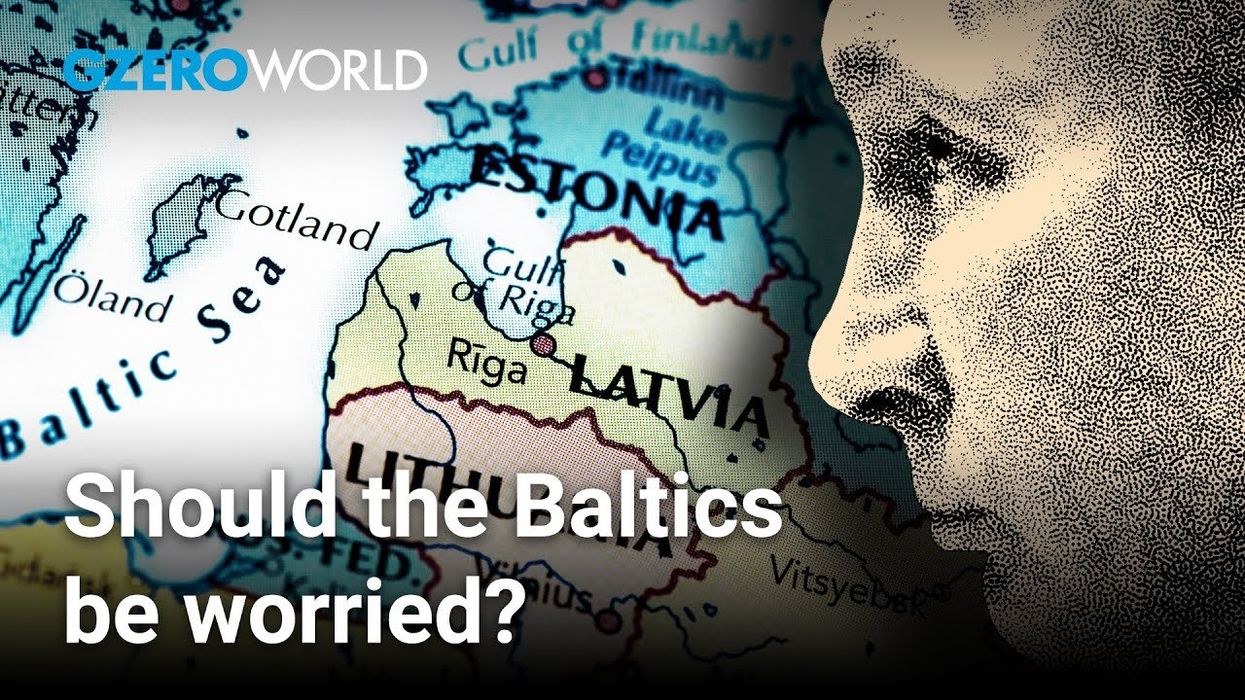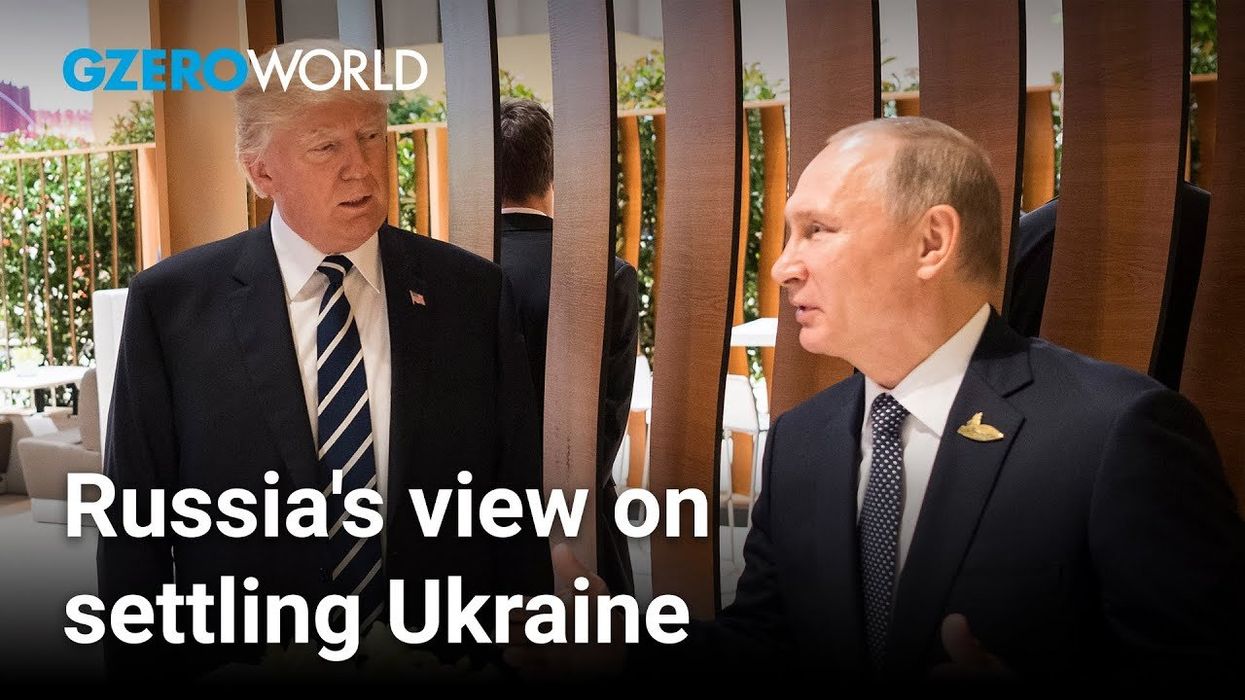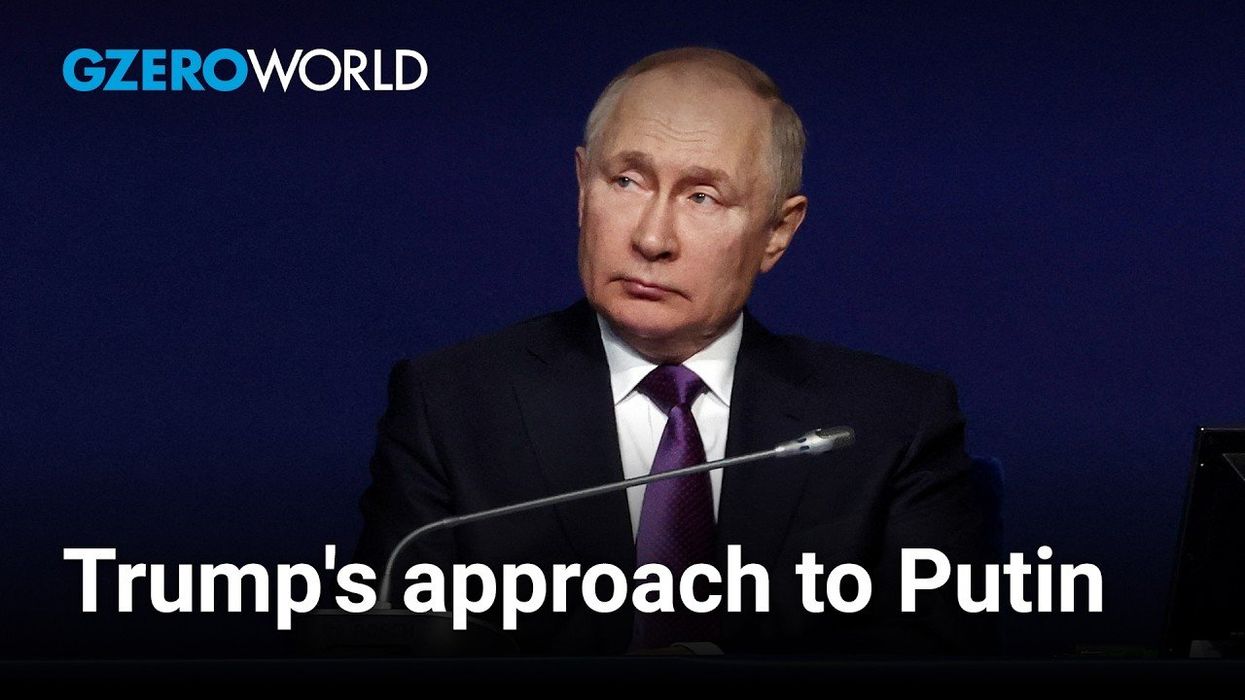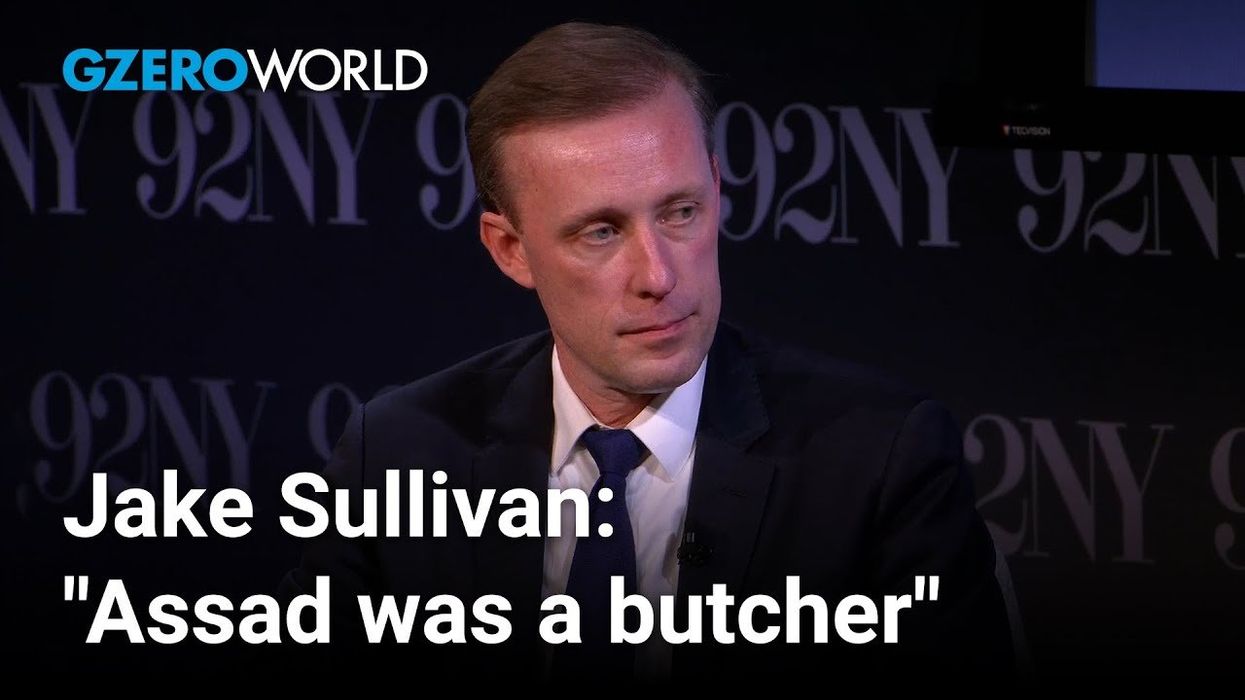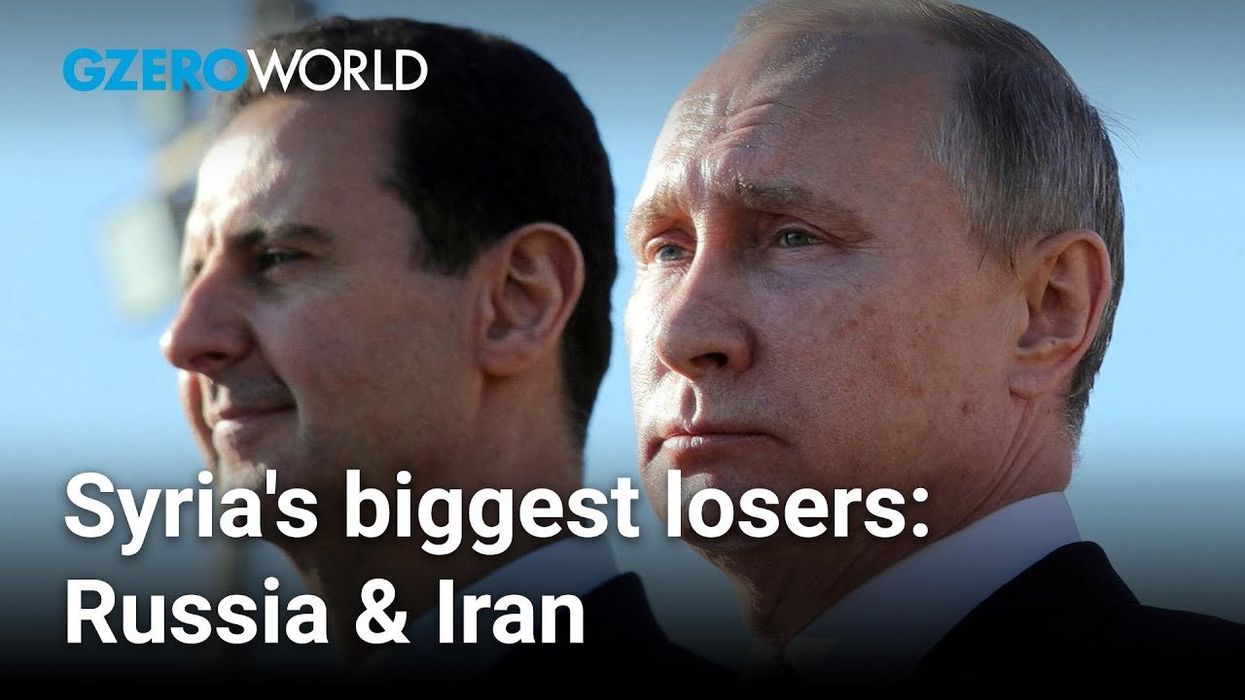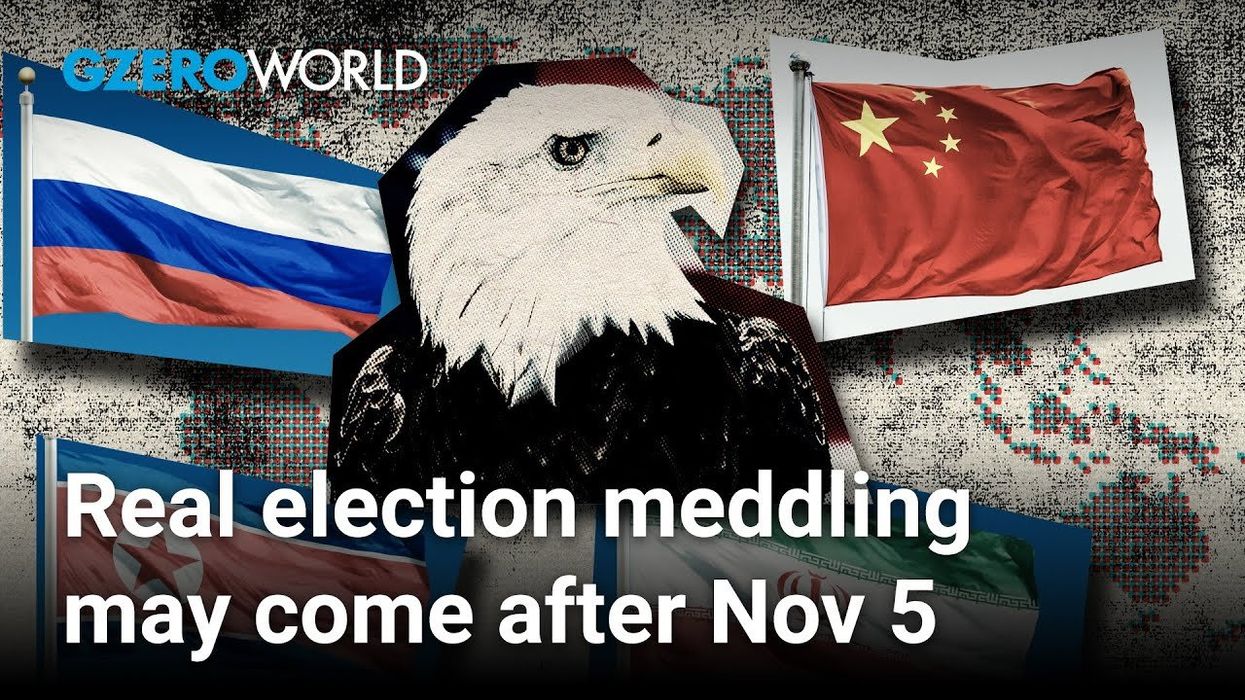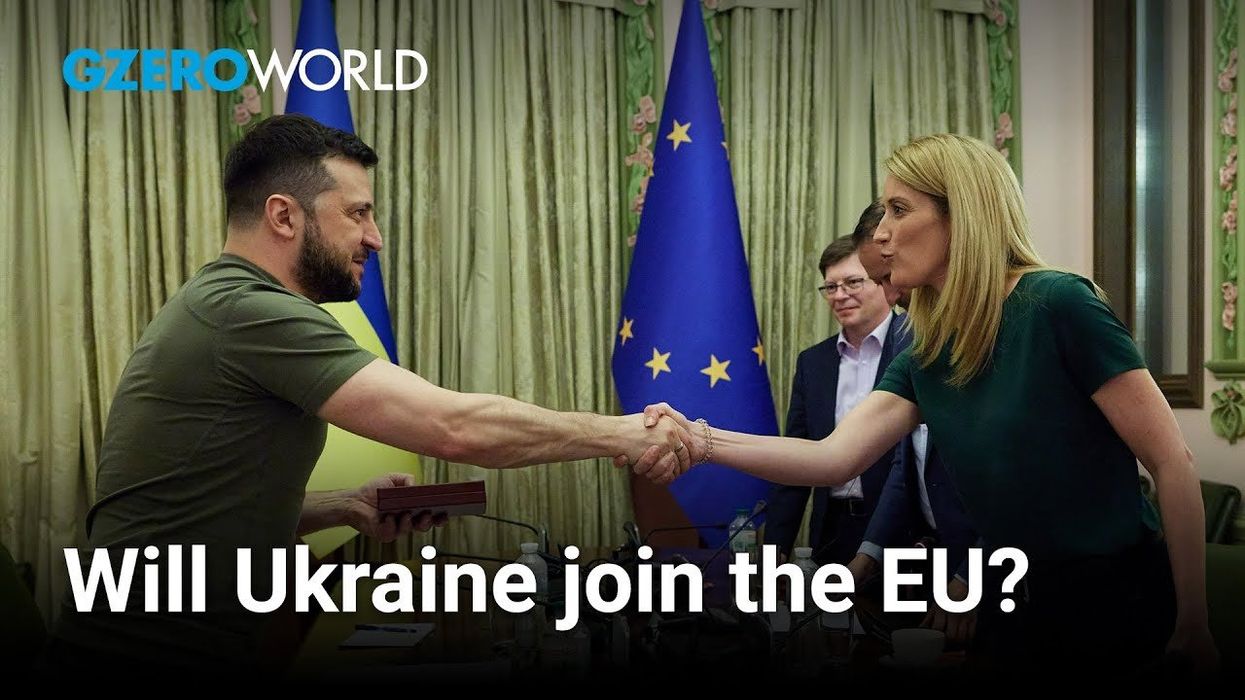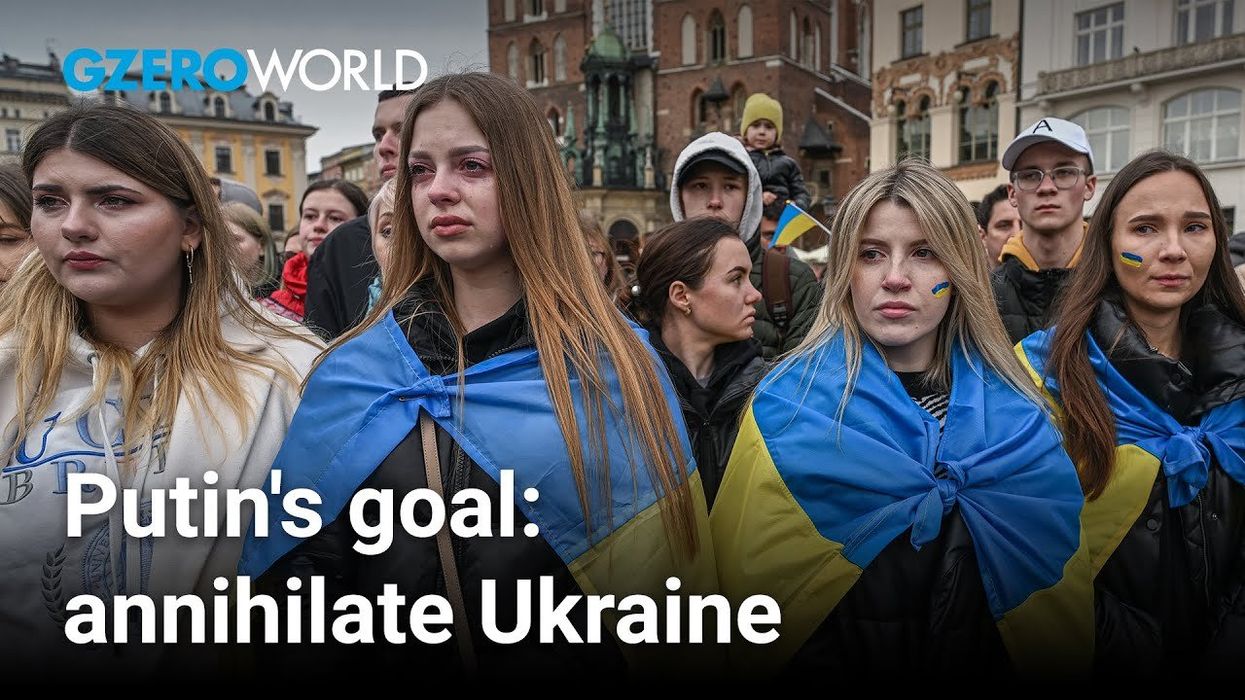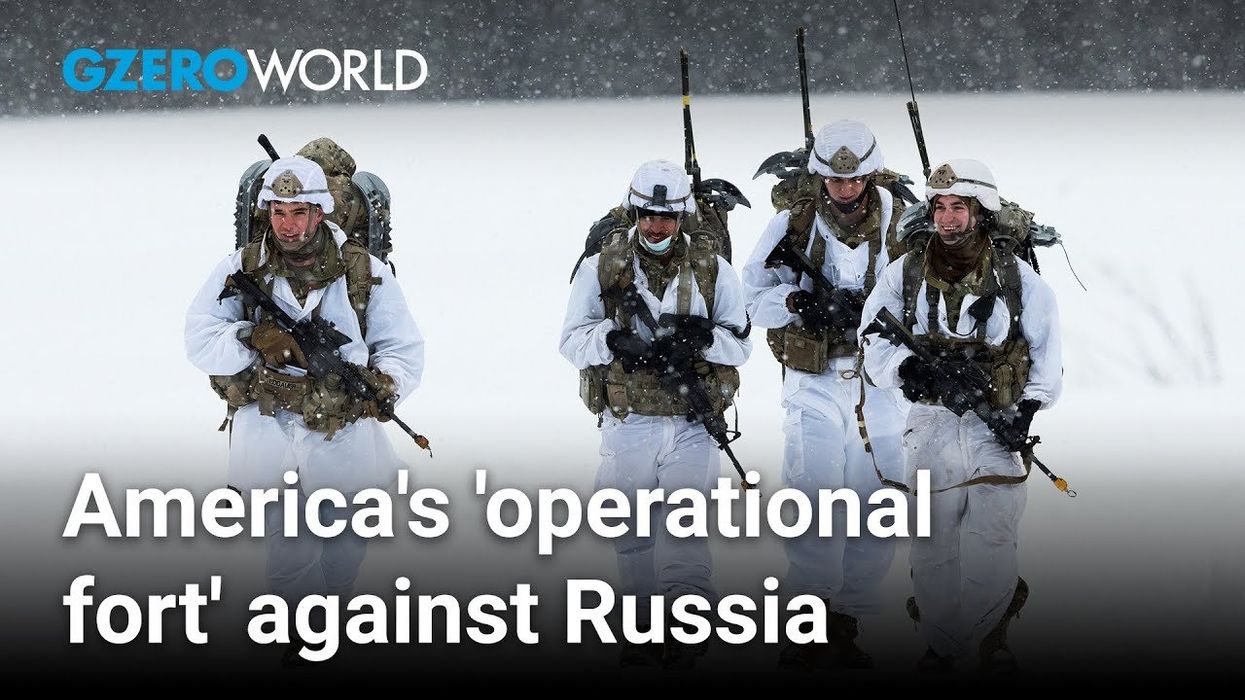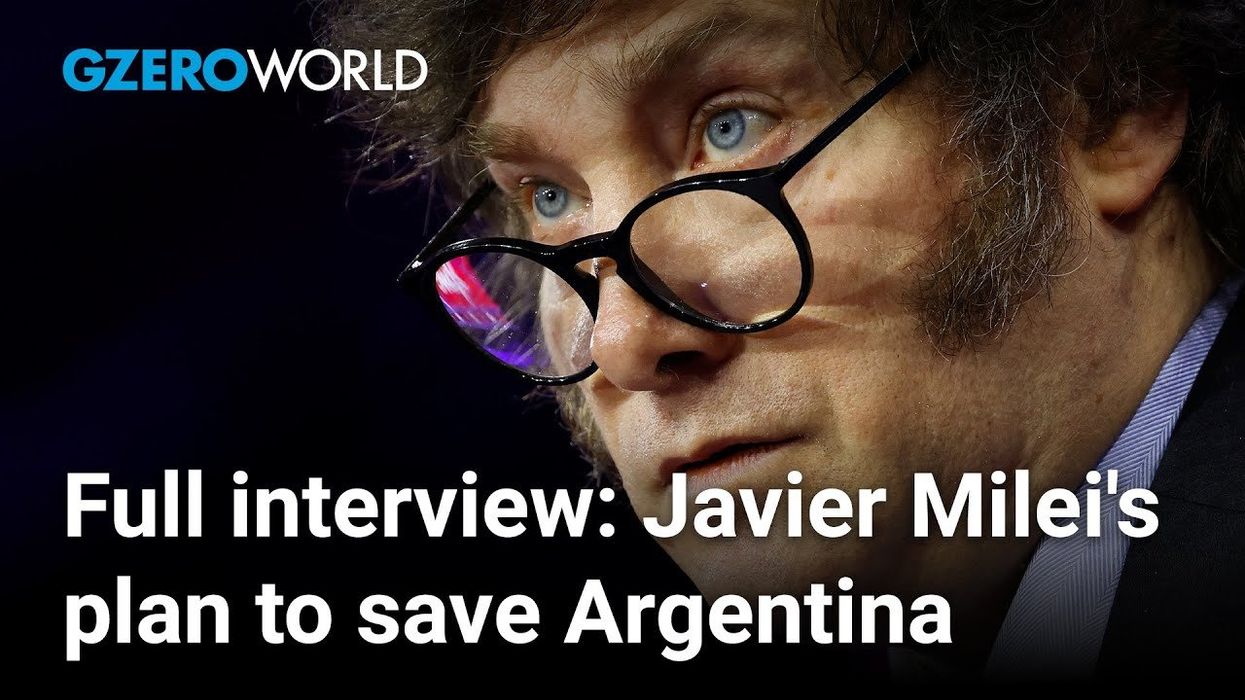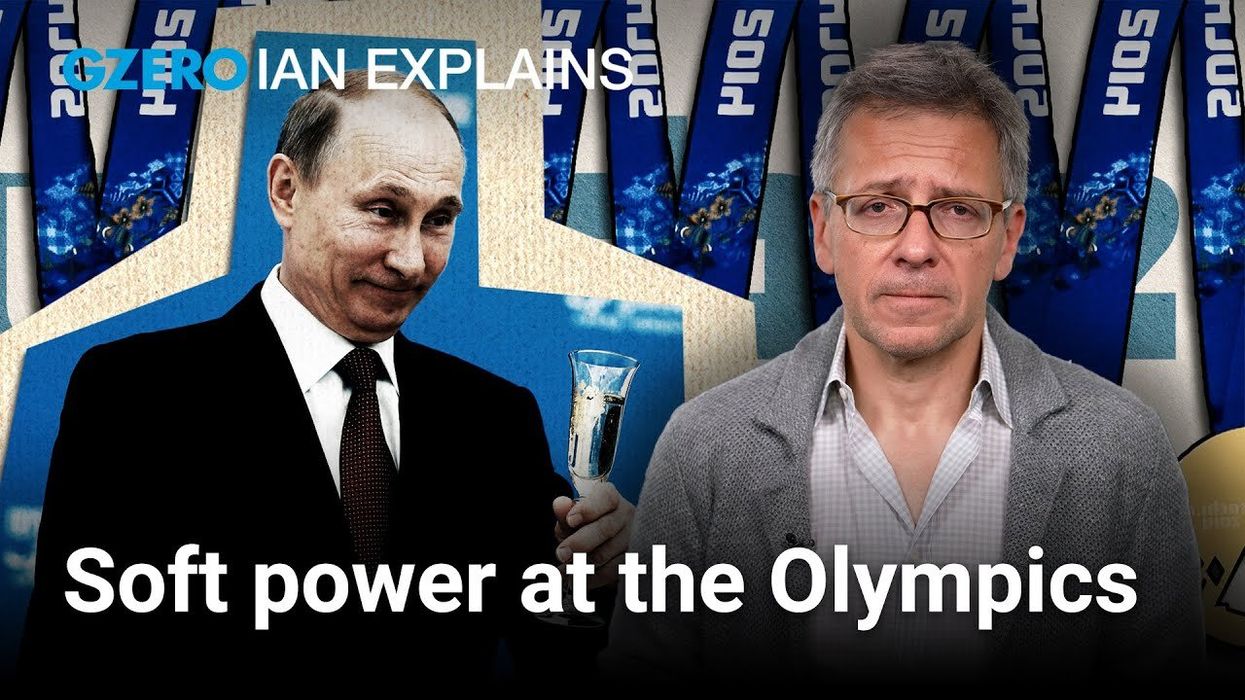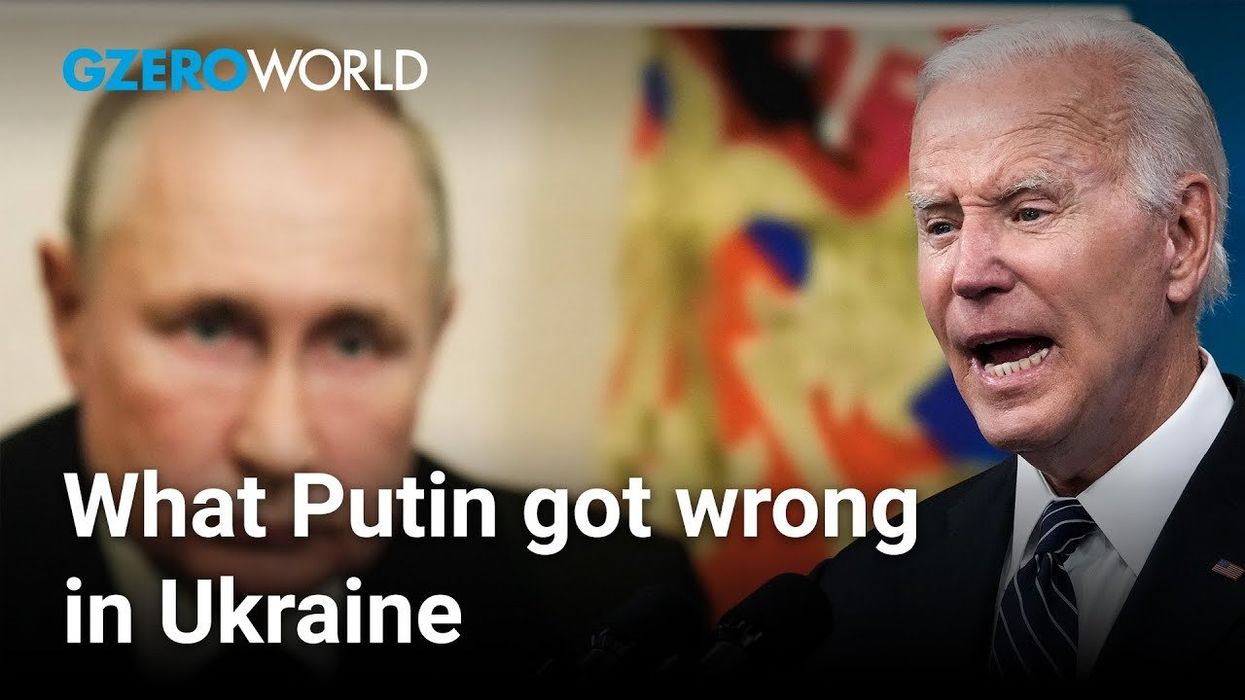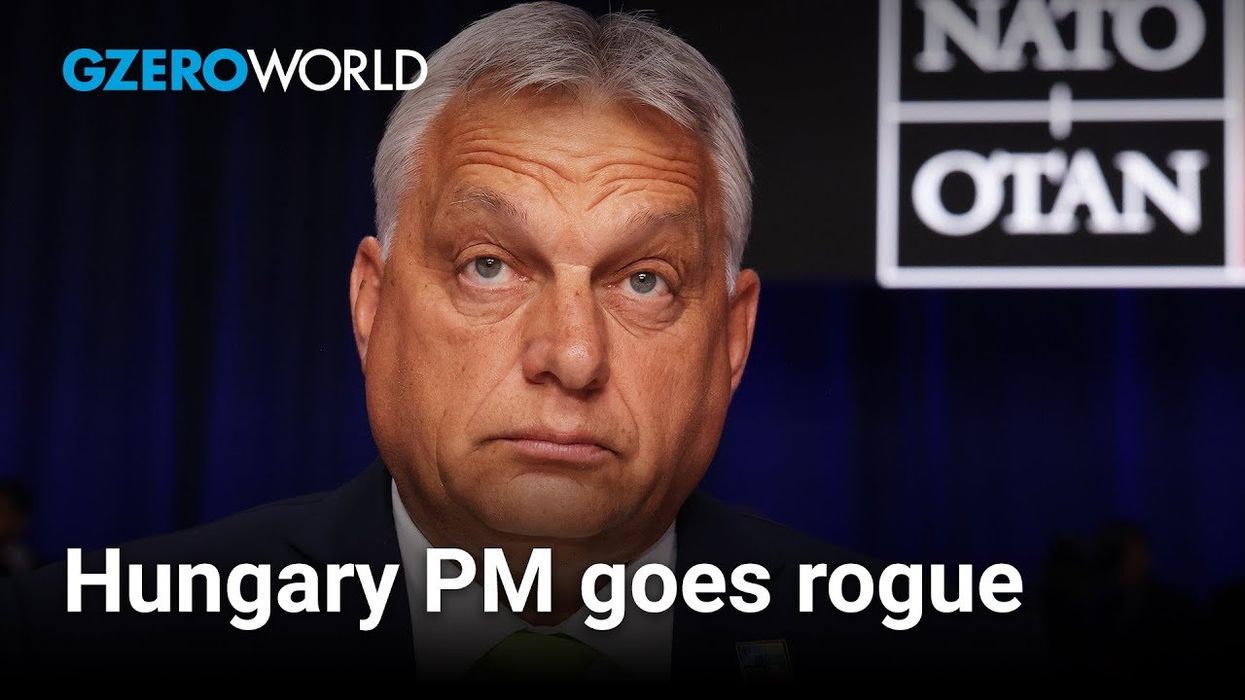VIDEOSGZERO World with Ian BremmerQuick TakePUPPET REGIMEIan ExplainsGZERO ReportsAsk IanGlobal Stage
Site Navigation
Search
Human content,
AI powered search.
Latest Stories
Start your day right!
Get latest updates and insights delivered to your inbox.
GZERO World Clips
Highlights from the GZERO World with Ian Bremmer weekly television show.
Presented by
A lot of ink has been spilled trying to understand why Russia invaded Ukraine, but who’d have thought that soup had anything to do with it?
And yet earlier this month, Maria Zakharova, spokeswoman of the Russian foreign ministry, had this to say about why the Kremlin is so furious with Ukraine: “They couldn’t share their borscht!”
“It had to belong to just one people, just one nationality,” she continued, slurring and swaying in a way that suggested she’d had something a little stronger than borscht for lunch herself.
“This is exactly what we are talking about, xenophobia, Nazism, extremism in all forms!”
It wasn’t lost on one prominent Russia watcher that, in an unwitting nod to Seinfeld, Zakharova had just called the Ukrainians actual “soup Nazis.”
Alex Kliment explores borscht for an episode of GZERO World with Ian Bremmer. Watch the video above.
This isn’t Russia and Ukraine’s first beef over borscht. In 2019, the Russian government tweaked the Ukrainians by claiming borscht was “one of Russia’s most famous and beloved dishes.” One typical response read: “You stole the Crimea and you try to steal borscht!”
But it’s not just Moscow’s menus that Kyiv is worried about when it comes to borscht. For several years now, Kyiv has been on a broader mission to make sure the world knows that the soup is Ukrainian.
In 2020, Ukraine’s government lobbied the famed Michelin restaurant guide to remove a reference to borscht from its first-ever writeup of Moscow’s restaurant scene. Kyiv also launched a formal campaign for UNESCO to recognize the soup as a uniquely Ukrainian contribution to human civilization, alongside Neapolitan pizzaiuolo, Belgian beer, and Korean kimchi.
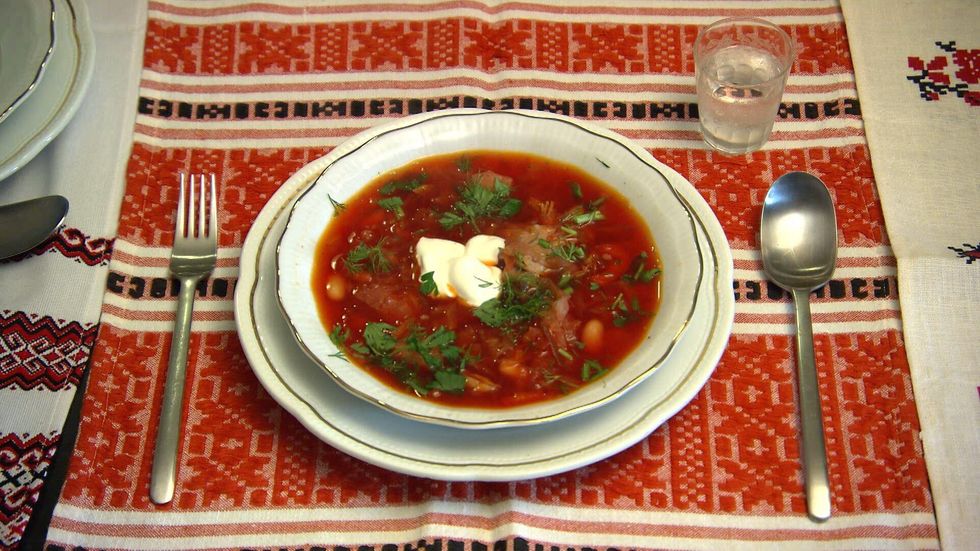 A bowl of borscht. Credit: GZERO Media
A bowl of borscht. Credit: GZERO Media
So what’s the borscht backstory? Most of the available evidence suggests that the beetroot-based soup was invented in what is today Ukraine, according to Marianna Dushar, a Ukrainian food historian currently based in Poland. It has its origins in the peasant villages that dot the Dnieper river basin, an area world famous for its rich, “black earth” soil.
But during the Tsarist and Soviet periods, the hearty soup recipe spread far and wide, becoming a staple at dinner tables across Eastern Europe and in the former Soviet Union. Jews from the Pale of Settlement played a major role in borscht's spread throughout the region and, ultimately, to the United States as well, says Dushar.
By the 1930s, when Stalin commissioned a Soviet cookbook, it listed more than a dozen kinds of borscht, the classic recipes being from Ukraine.
All nations are attached to their cuisines, of course, but food plays an outsized role in Ukraine’s identity, says Johanna Mendelson-Forman, a scholar at American University in Washington, DC, who has developed a curriculum focusing on what she calls “Conflict Cuisine.”
Ukraine, she points out, is itself one of the largest food producers in the world — as a major wheat exporter, it’s long been seen as “the breadbasket of Europe.” But the experience of Soviet-forced famines in the 1930s, which killed millions of Ukrainians, is still a grim touchstone of national identity too.
Now Russia’s invasion has thrust that past into the present again. As Ukrainians struggle against an aggressor who openly denies their right to exist as an independent nation, borscht has boiled up into something bigger — a symbol of survival and perseverance.
“They launched the war to erase our history,” says Ievgen Klopotenko, a celebrated Ukrainian chef who currently runs soup kitchens for refugees in western Ukraine. The charismatic 34-year-old — who looks uncannily like a young Sean Penn — posts regularly about Ukrainian food to his 700,000 followers on Instagram. And for him, borscht is everything.
“It’s part of our identity. It’s in the cells of our bodies,” he says urgently. “If they take our food, they’ll take half of us, and then they’ll take half of our language, and then our religion.” After that, he warns, “they can take our lives and then there will be no such nation as Ukraine any more.”
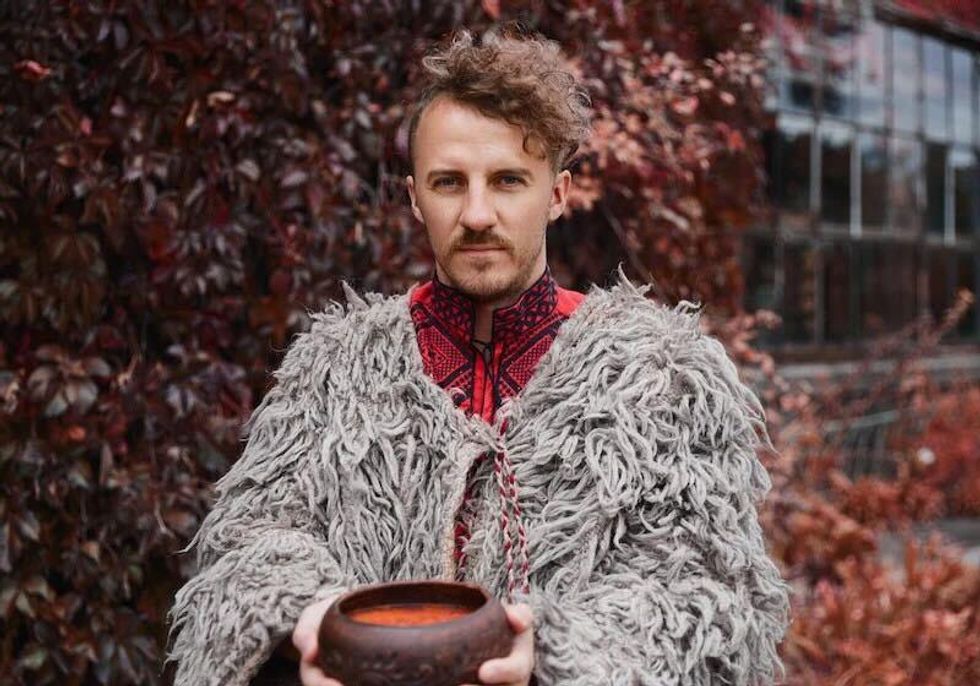 Ievgen Klopotenko. Credit: Vlad Nagorniy
Ievgen Klopotenko. Credit: Vlad Nagorniy
But borscht isn’t all high politics. It’s also home cooking. To get a sense of what that means for Ukrainians far from their homeland, I dropped by the apartment of Mikhail and Sophia Turovsky, who live in Brooklyn, NY.
The Turovskys came to New York from Kyiv in the late 1970s as part of a mass exodus of Soviet Jews that began when the Kremlin relaxed its emigration rules.
It’s hard to overstate how important borscht is to the Turovsky household.
“Borscht is life!” exclaims Mikhail, 88, a celebrated painter and writer.
A trim, energetic, man with an Amish-style beard and a Shakespearean shock of hair, Mikhail’s eyes sparkle constantly with the makings of a good joke or aphorism. “It is a philosophy!” he says, while Sophia, who worked for decades as an engineer to support the family here in America, stirs a bubbling pot of the soup. “It’s the collective wisdom of a nation!”
Even after nearly half a century in the United States, both Mikhail and Sophia still feel close to Ukraine. “It’s the land that gave us life, after all,” Sophia says. It’s where they studied, where they met, and where they lived until they emigrated in their 40s with their two children, Mikhail's aunt, and Sophia's mother. Mikhail is even officially recognized as a People’s Artist of Ukraine, the highest honor an artist can receive there.
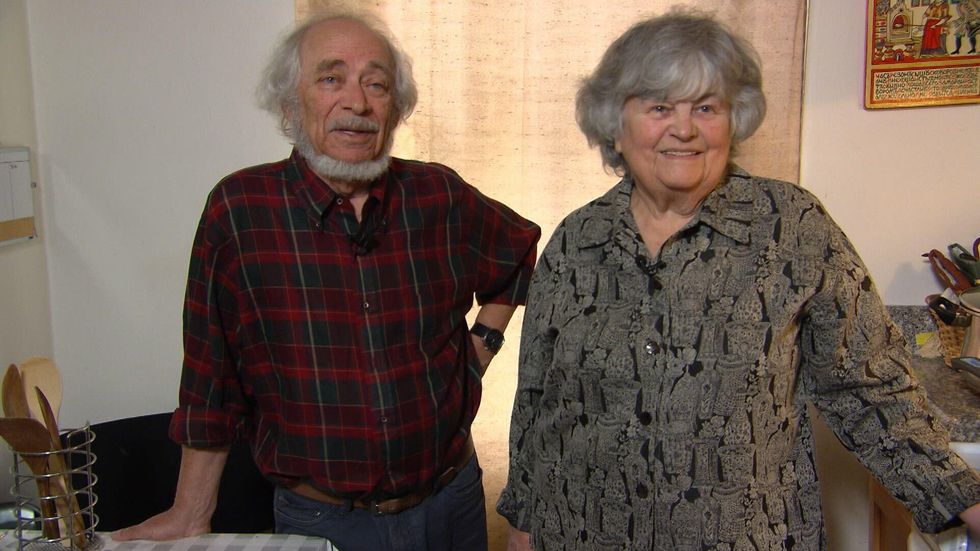 Mikhail and Sophia Turovsky. Credit: GZERO Media
Mikhail and Sophia Turovsky. Credit: GZERO Media
But as for whether a spoonful of borscht triggers a kind of deeper Proustian connection to their homeland — not so much.
“It’s just food, you know? You like to eat it,” says Sophia. For her it’s really a tie to something more personal than political.
“All my life I was a working woman,” she says, “and cooking wasn’t a big part of my life. But I learned it from my mom, and since my mom passed away, each time I do something, I think about her.”
With her bubbling pot of borscht ready, Sophia carefully ladles it into bowls and sets them on a table laden with rushniki, the traditional red-and-white embroidered cloths from Ukraine.
And with a dollop of sour cream, a sprinkle of parsley, and — at Mikhail’s insistence — a shot of vodka (two shots), it’s time to eat.
Hungry to make your own bowl of borscht? Get details on Ukrainian chef Ievgen Klopotenko's own recipe here.
Keep reading...Show less
More from GZERO World Clips
Beyond Gaza and Ukraine: The wars the world is ignoring
December 23, 2025
Israel is still banning foreign media from entering Gaza
December 23, 2025
Wikipedia's cofounder says the site crossed a line on Gaza
December 16, 2025
Geoffrey Hinton on how humanity can survive AI
December 09, 2025
Toppling Maduro would be "the easy part" says former Ambassador
November 25, 2025
Sorkin: A financial crisis is coming and CEOs are scared to speak out
November 18, 2025
The surprising similarities between China and the US
November 11, 2025
China isn't racing to AGI, why is the US?
October 28, 2025
Congress is paralyzed. Who will fix it?
October 21, 2025
Russian drone attacks are reshaping life in Ukraine
September 30, 2025
Can the UN stop death and destruction in Gaza?
September 19, 2025
China is winning the clean energy race
September 16, 2025
AI is already discovering new cures
September 08, 2025
The rise of impunity–and its human cost
August 26, 2025
What (or who) will replace USAID?
August 25, 2025
Why Pakistan sees China as a "force for stability"
August 18, 2025
Feldman: Trump is using antisemitism to go after Harvard
August 11, 2025
What's at stake in the US-China trade war
August 04, 2025
Sen Warner: Tulsi Gabbard should resign or be fired
July 18, 2025
China's stockpiling nukes. Should we be worried?
July 15, 2025
Can Taiwan defend itself from Chinese invasion?
June 10, 2025
Growing up as a Vietnamese refugee in 1980s America
April 29, 2025
Life in Saigon during the Vietnam War
April 28, 2025
How Ukraine feels about negotiating with Russia
April 15, 2025
Has China lost patience with Venezuela's Maduro regime?
April 08, 2025
What are Elon Musk's real goals with DOGE?
April 01, 2025
Why China's Xi Jinping needs Jack Ma
March 18, 2025
Could Russia invade the Baltics next?
March 04, 2025
Is President Trump's Russia pivot a win for China?
February 25, 2025
What if Palestinians want to leave Gaza?
February 18, 2025
Should we worry about bird flu in the US?
February 11, 2025
Is Trump's new approach to Putin effective?
February 04, 2025
Are we heading for a dystopian AI future?
January 22, 2025
Will Elon Musk be good for America?
January 21, 2025
Fukuyama: It’s hard to build anything in the US with so many rules
January 14, 2025
Trump can't "stay out" of Syria entirely, says Kim Ghattas
December 17, 2024
Can Trump's tariff plan boost the US economy?
December 10, 2024
Trump wants to be the one to end the Ukraine war, but at what cost?
November 27, 2024
Trump 2.0 cabinet picks: "Loyalty is the currency of the moment"
November 26, 2024
Should we be worried about population decline?
November 19, 2024
Donald Trump will take office with unprecedented power
November 08, 2024
Ukraine and the future of Europe
October 22, 2024
Ukraine war: What freedom looks like
October 15, 2024
Iran's VP denies supporting Russia in Ukraine war
October 06, 2024
Ukraine's tech use against Russia is revolutionizing warfare
October 02, 2024
Iran's right to self-defense: VP Mohammad Javad Zarif
October 01, 2024
EXCLUSIVE: Iran VP denies plot to kill Trump
September 26, 2024
Guterres: Now is the time for UN Security Council reform
September 23, 2024
Can the UN get the world to agree on AI safety?
September 18, 2024
UFOs must be investigated, says former astronaut Sen. Mark Kelly
September 18, 2024
Can the US stay ahead of Russia & China in the space race?
September 11, 2024
Will the DNC momentum take Democrats all the way?
August 25, 2024
Russia wants to erase Ukraine's identity
August 20, 2024
As the Arctic melts, geopolitics heats up
August 15, 2024
Javier Milei's plan to save Argentina: Full interview
August 08, 2024
Argentina's Milei shares strong views on China and Israel
August 05, 2024
Can Milei save Argentina's economy using "shock therapy"?
August 04, 2024
The dangers of sportswashing for the Olympics
July 29, 2024
Could the Olympics ever be free of politics?
July 28, 2024
Ian Explains: Why authoritarian rulers love the Olympics
July 26, 2024
How will the summer of 2024 be remembered in US history?
July 22, 2024
Extremists vs. moderates: The real divide in US politics
July 20, 2024
GZERO Series
GZERO Daily: our free newsletter about global politics
Keep up with what’s going on around the world - and why it matters.
